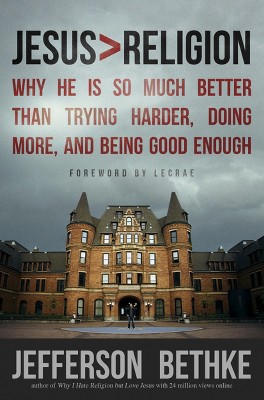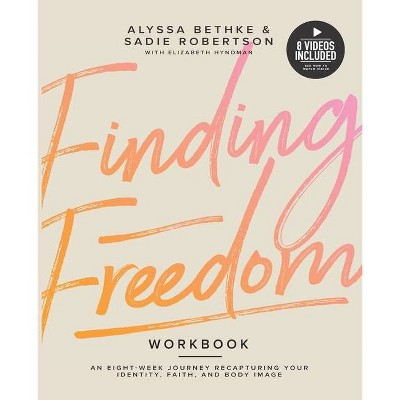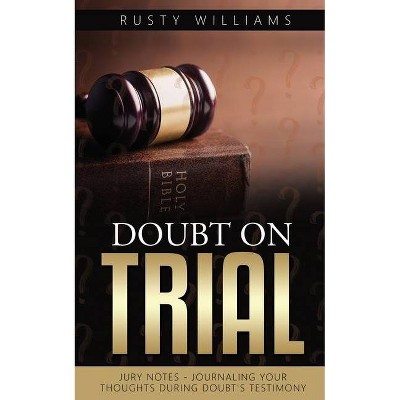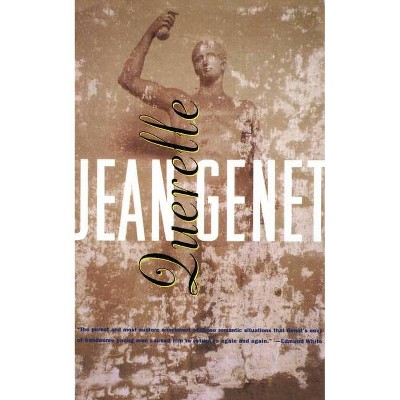Democracy on Trial - by Jean Bethke Elshtain (Paperback)

Similar Products
Products of same category from the store
AllProduct info
<p/><br></br><p><b> About the Book </b></p></br></br>In this timely, thought-provoking book, one of America's leading political philosophers and public intellectuals questions whether democracy will prove sufficiently robust and resilient to survive the century. Elshtain asks what has gone wrong and why, drawing on examples from American history and other parts of the world. By insisting that there is much to cherish in our democratic traditions, she concludes that democracy involves a permanent clash between conservatism and progressive change.<p/><br></br><p><b> Book Synopsis </b></p></br></br>Even as Russia and the other former Soviet republics struggle to redefine themselves in democratic terms, our own democracy if faltering, not flourishing. We confront one another as aggrieved groups rather than as free citizens. Cynicism, boredom, apathy, despair, violence--these have become coin of the civic realm. They are dark signs of the times and a warning that democracy may not be up to the task of satisfying the yearnings it unleashes--yearnings for freedom, fairness, and equality.In this timely, thought-provoking book, one of America's leading political philosophers and public intellectuals questions whether democracy will prove sufficiently robust and resilient to survive the century. Beginning with a catalogue of our discontents, Jean Bethke Elshtain asks what has gone wrong and why. She draws on examples from America and other parts of the world as she explores the politics of race, ethnicity, and gender identity--controversial, and essential, political issues of our day. Insisting that there is much to cherish in our democratic traditions, she concludes that democracy involves a permanent clash between conservatism and progressive change.Elshtain distinguishes her own position from those of both the Left and the Right, demonstrating why she has been called one of our most interesting and independent civic thinkers. Responding to critics of democracy, ancient and modern, Elshtain urges us to have the courage of our most authentic democratic convictions. We need, she insists, both hope and a sense of reality.Writing her book for citizens, not experts, Elshtain aims to open up a dialogue and to move us beyond sterile sectarian disputes. <i>Democracy on Trial</i> will generate wide debate and controversy.<p/><br></br><p><b> From the Back Cover </b></p></br></br>Even as Russia and the other former Soviet republics struggle to redefine themselves in democratic terms, our own democracy is faltering, not flourishing. We confront one another as aggrieved groups rather than as free citizens. Cynicism, boredom, apathy, despair, violence - these have become coin of the civic realm. They are dark signs of the times and a warning that democracy may not be up to the task of satisfying the yearnings it unleashes - yearnings for freedom, fairness, and equality. In this timely, thought-provoking book, one of America's leading political philosophers and public intellectuals questions whether democracy will prove sufficiently robust and resilient to survive the century. Beginning with a catalogue of our discontents, Jean Bethke Elshtain asks what has gone wrong and why. She draws on examples from America and other parts of the world as she explores the politics of race, ethnicity, and gender identity - controversial, and essential, political issues of our day. Insisting that there is much to cherish in our democratic traditions, she concludes that democracy involves a permanent clash between conservatism and progressive change. Elshtain distinguishes her own position from those of both the Left and the Right, demonstrating why she has been called one of our most interesting and independent civic thinkers. Responding to critics of democracy, ancient and modern, Elshtain urges us to have the courage of our most authentic democratic convictions. We need, she insists, both hope and a sense of reality. Writing her book for citizens, not experts, Elshtain aims to open up a dialogue and to move us beyond sterile sectarian disputes. Democracy on Trial is a book ofand for these times, but one that both links us to the past and looks forward to a brave democratic future, for ourselves and our posterity. Written in what one critic has called "Elshtain's bold, idiosyncratic style", this book cannot be pigeonholed ideologically. Democracy on Trial will generate wide debate and controversy.<p/><br></br><p><b> About the Author </b></p></br></br><b>Jean Bethke Elshtain</b> is the Laura Spelman Rockefeller Professor of Social and Political Ethics at the University of Chicago. She is the author of <i>Just War Against Terror</i> and <i>Democracy on Trial</i>, among other books. She lives in Nashville, Tennessee and Chicago, Illinois.
Price History
Price Archive shows prices from various stores, lets you see history and find the cheapest. There is no actual sale on the website. For all support, inquiry and suggestion messages communication@pricearchive.us




















